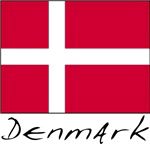As Ireland votes on Lisbon, Denmark mulls EU future
 Copenhagen/Stockholm - If voters in Ireland approve the EU's Lisbon Treaty in a referendum Friday, their vote is likely to refocus debate in Denmark about its ties to the European Union.
Copenhagen/Stockholm - If voters in Ireland approve the EU's Lisbon Treaty in a referendum Friday, their vote is likely to refocus debate in Denmark about its ties to the European Union.
Unlike Ireland, Denmark has already ratified the treaty, which is designed to boost the EU's global standing by streamlining decision- making in the enlarged 27-member bloc. Irish voters rejected that treaty in 2008 and are considering a slightly modified form of the agreement in this latest referendum.
But, like the Irish, the Danes have also shown scepticism about closer ties to the EU in the past.
Denmark joined the EU in 1973. But voters in the Scandinavian country have also voted "No" to the Maastricht Treaty in a 1992 referendum (although they then approved the treaty, which laid the groundwork for many EU institutions, on a second vote in 1993) and, in 2000, voted against replacing the krone with the euro.
After the defeat of the 1992 referendum, Denmark obtained opt-outs in areas such as security and defence policy, justice and home affairs.
These opt-outs may come into question if the Lisbon Treaty comes into effect, which will happen if Ireland approves the referendum and the Czech Republic and Poland - the lone remaining holdouts - ratify the treaty.
On the eve of the Irish vote, the Danish government was urged to set a date for a referendum on the current opt-outs by, among others, Margrethe Vestager, leader of the opposition Social Liberals.
If Irish voters approve the treaty, Prime Minister Lars Lokke Rasmussen should clearly state if Denmark can stage a referendum, Vestager said, according to Danish news agency Ritzau.
Vestager said that Denmark risked being left out of aspects of joint police cooperation, for instance Europol, if the reform treaty is implemented. That would harm efforts to tackle organized crime.
The assessment was shared by Professor Marlene Wind of the Centre for European Politics at Copenhagen University.
Wind told the German Press Agency dpa that if the Lisbon Treaty comes into force, it "will make it even more pressing and necessary for Danish politicians and parliament to make up their mind on the Danish exceptions."
"There are so many things happening in the Lisbon Treaty that if its ratified finally and is in force from January 1 (2010) then it will very quickly create problems for Denmark in terms of our exceptions to justice and home affairs," Wind added.
Wind said it was unlikely the government would try to stage a single referendum on all opt-outs, preferring to take one issue at a time, perhaps starting with defence, which is "easier," followed by justice and home affairs, and the euro.
The government's position, as well as that of Lokke Rasmussen, who took over in April is not really known, Wind noted.
"Everybody is waiting to see what happens," Wind said, adding she doubted that a debate would begin until after the UN Climate Conference, to be hosted in Copenhagen in December.
EU affairs spokesperson Anne Grete Homsgaard of the opposition Socialist People's Party also told Ritzau it was time for the premier to state how the government wanted to deal with the opt-outs.
But there was by no means consensus on the matter and, in some cases, continuing strong opposition to any closer ties to the EU.
The Danish People's Party, which is known for its EU scepticism, said the opposition was getting ahead of itself because of the Irish vote. The party backs Denmark's minority government, except on EU affairs.
Morten Messerschmidt, a member of the European Parliament for the populist party, went even further. According to Ritzau, he questioned the need for a referendum on something that was "harmful for Denmark." (dpa)